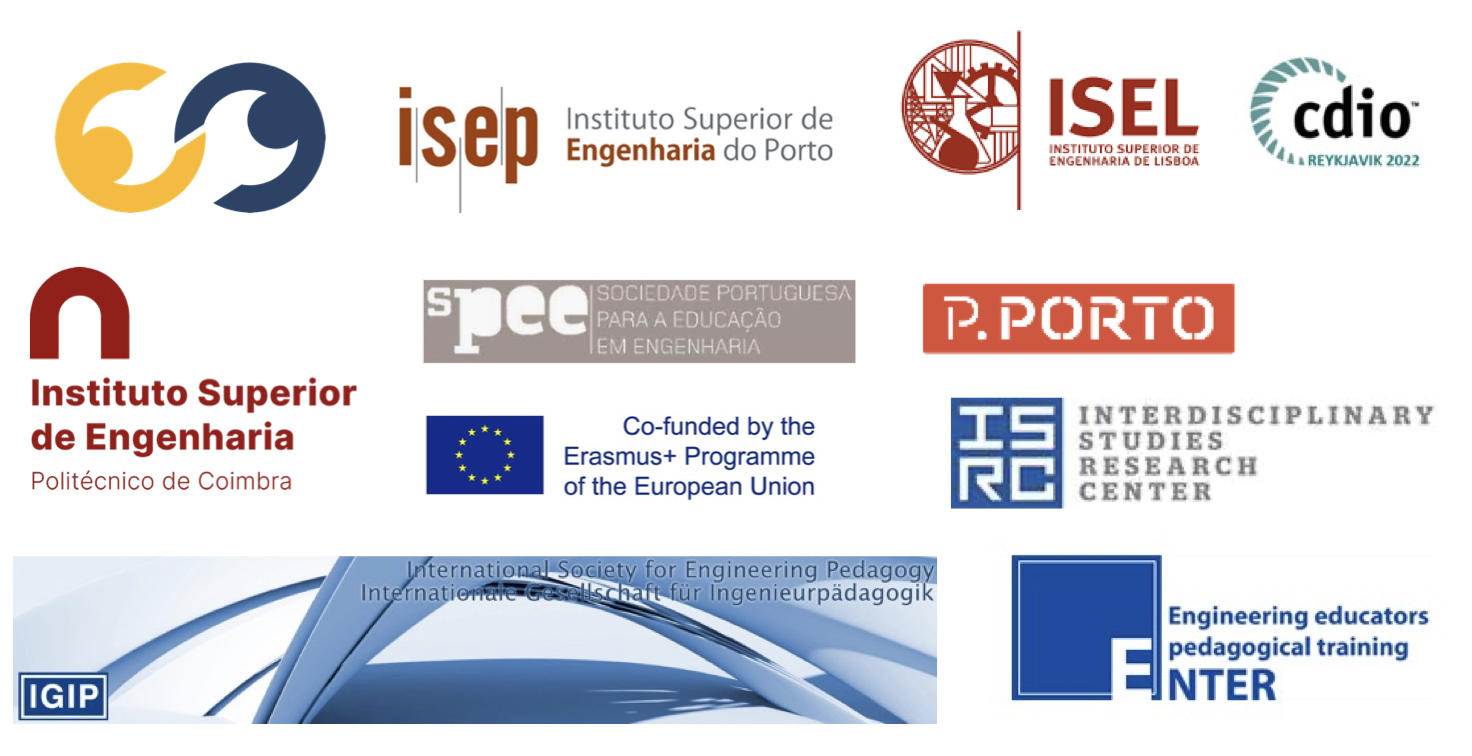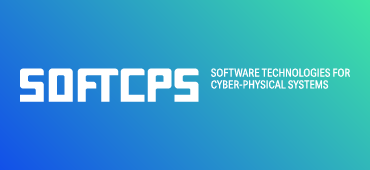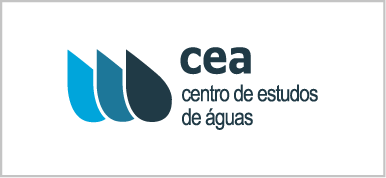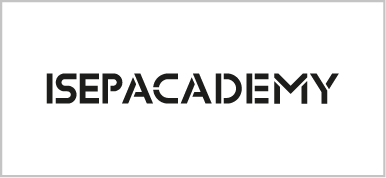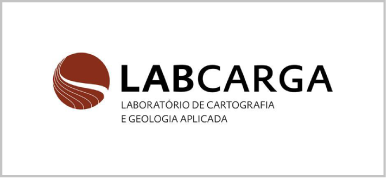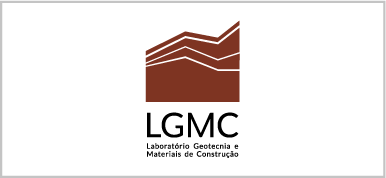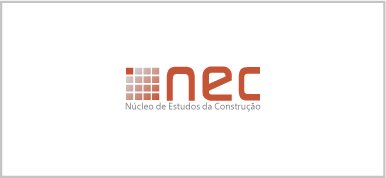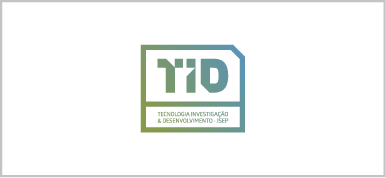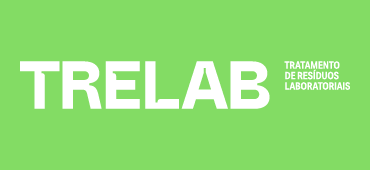29th EUCLIDES network general meeting
and
International Conference on Actions for Gender Equality in Engineering
October 27th-28th 2022
EUCLIDES network +info: http://www.euclidesnet.eu
Actions for Gender Equality in Engineering - How can engineers improve gender equality?
Final Program - here
Sala de atos - Building E - entrance number 3
- Rua Dr. António Bernardino de Almeida, 431
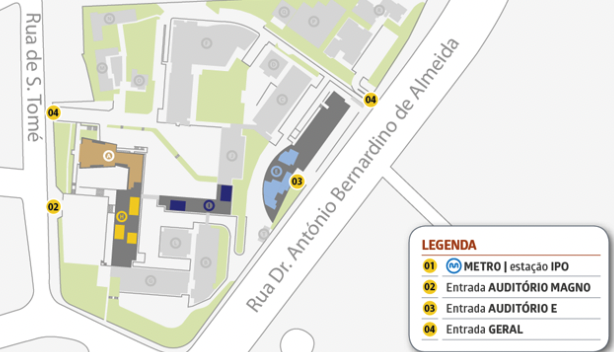
Topics:
- Female impact in engineering problem solving
- Aspects that trigger students' interest in Science, Technology, Engineering, and Mathematics (STEM)areas
- Gender equality entrepreneurship and leadership
- Gender equality engineering competences development
- Gender equality in engineering studies
- Gender equality in R&D in engineering
Registration – October 20th
REGISTRATION face to face – here
REGISTRATION online - here
Face to face registration fee: 100€ (4 coffee breaks + 2 lunches + 1 dinner included)
Online registration fee: no charge
Invited Speakers
Ana Pires
Ana Pires is a Researcher at INESC TEC’s Centre for Robotics and Autonomous Systems, and has been awarded a 6 years junior research contract under FCT/MCTES (CEECIND/00835/2018) on “Mapping underwater geological resources with robotics: a system tool for space-earth interaction and validation”. She has a European Doctorate in Geosciences (Geological Resources and Geomaterials field) and MSc in Georesources and Geotechnics from Aveiro University, as well as a Geotechnical and Geoenvironmental Engineering Degree (ISEP). She regularly collaborates as researcher with the former training centers where spent over 11 years related to multi and interdisciplinary projects (Laboratory of Cartography and Applied Geology – LABCARGA|ISEP and GeoBioTec|UA research unit). Between August 2019 to July 2020 she was an Invited-Scientist at the School of Engineering (ISEP), Polytechnic of Porto. Presently she has been involved in several projects related to sustainable sea/marine mining, geotechnologies and georesources, such as EMSO-PT Project (supported by P2020 and FCT), INSite and MineHeritage Projects (supported by EIT Raw Materials). She works very closely with the preparation and submission of scientific or up-scaling projects related to underwater technologies. She is also the first Portuguese women to finish with success the Scientist-Astronaut Program, Class of 1802, under the framework of Project PoSSUM (Polar Suborbital Science in the Upper Mesosphere) supported by NASA, and she continues to pursue the space training and to attend the research programs. She is also a Researcher at the International Institute of Astronautical Sciences (IIAS). Currently she is the Co-Chair Knowledge Management of “Space For All Nations” (SFAN) project developed by IIAS and PoSSUM Program. Since 2018 she has also made efforts in Portugal to promote human space flight, astrogeology, technology, robotics, STEM outreach activities, and has also been invited to numerous public talks, media interviews and conference events.
https://www.linkedin.com/in/piresana/?originalSubdomain=pt
Anália Torres
Anália Torres, PhD in Sociology, is a Full Professor and Coordinator of the Sociology Unit at the Institute of Social and Political Sciences, University of Lisbon (ISCSP-UL). Founder and coordinator of CIEG, Interdisciplinary Centre for Gender Studies (www.cieg.iscsp.ulisboa.pt), the first scientific research centre in Portugal exclusively dedicated to gender, feminist and women's studies. With an interdisciplinary perspective, this Centre brings together 44 national researchers from different fields, experts in gender studies. Founded in 2012, CIEG was rated Excellent by international evaluations panels (2015-2019) promoted by the Portuguese Foundation for Science and Technology (FCT). Her experience in scientific positions at national and international level is extensive. She was elected member of the Executive Committee of the European Sociological Association (ESA) (2005-2009) and as President from 2009 to 2011. Amongst other evaluation activities within the European Commission (EC), she integrated the evaluation panel SH2-Institutions, Values, Beliefs and Behavior of the European Research Council (ERC), where she continues to serve as remote evaluator. At national level, she was elected President of the Portuguese Sociological Association (APS) (2002-2006), and appointed Member of FCT Scientific Council for Social Sciences and the Humanities (2012-2014). Since 2020, she belongs to the Management Board of A3ES. As Coordinator of the Sociology Unit at ISCSP-UL, she was co-responsible for the creation of a PhD in Sociology (2014-) gathering several institutions and universities. She had the initiative of creating a PhD in Gender Studies, gathering in consortium CIEG/ISCSP-UL, the Faculty of Law and the School of Social Sciences and Humanities of Nova Univ. Lisbon. The course started in 2018/2019 with 30 students and is going on very successfully. She created several post-graduate courses: in ISCTE, Master in Family and Society (2002-); in ISCSP, Master in Sociology and Family and Gender (both in 2012-); she founded a Postgraduate Course on Gender Equality (2018-); and since 2016 Training Courses on Gender Equality ministered in ISCSP for very wide audiences. She is author, co-author or editor of more than 20 books, 4 of them as a sole author and 80 book chapters, in Portuguese and other languages and papers in national and international scientific journals. She belongs to several editorial teams of national and international peer-reviewed journals. Since 1995, she participates in several European research networks and, since 2002, belongs to the national executive committee responsible for implementing the European Social Survey in Portugal. She coordinated several work packages from research projects within Framework Programs 6 and 7 (WORKCARE - 2006-2009; WORKCARE Synergies (2009-2011). Since 1988 she coordinated 14 research projects and 7 evaluation projects, most of them funded through competitive calls, and represented Portugal in 8 international projects. The research carried out has considerably outreach resulting in publications disseminated both to the academic community and to media. The social impact of her work and of the teams she directs, is highly reputable and has contributed to change directly and indirectly several laws in Portugal (Divorce reform, 2008, Harassment 2018 among others). Recent projects: Epiteen24 (2013/2015), funded by FCT; Sexual Harassment and Bullying in the Workplace (2015/2017), funded by EEAGrants; Gender Equality over the life course (2017/2018) funded by FFMS. Presently, within CIEG, she coordinates the international funded (EEA Grants) project Ge-HEI-Gender Equality in Higher Education Institutions, promoted by (DGES), in collaboration with (A3ES), and the University of Iceland (RIKK). Since 2020, she is responsible for a work package of the project ALLINTERACT-Widening and diversifying citizen engagement in science, funded by Horizon2020.
https://www.cienciavitae.pt/portal/EC1A-6917-C16C
José Carlos Quadrado
Jose Carlos Quadrado, is an international leader in engineering education. Professor with aggregation in eletrical engineering, he is currently the president of the ENTER network, an international entity that regulates the profession of engineering teacher.
He holds a Bachelor’s degree in Energy and Power Systems, a diploma in Electrical Engineering, Automation and Industrial Electronics, a Master’s and a Doctoral degree in Electrical Engineering and Computers from the Lisbon University. He also holds the Habilitation degree (Aggregation) in Electrical Engineering from Beira Interior University.
Innovative, good communicator and experienced in the field of Engineering he is the past-president of the International Federation of Engineering Education Societies (IFEES) as well as past-president of the Ibero-American Engineering Education Association (ASIBEI) and past-VP of the European Society for Engineering Education (SEFI).
Being a former member of the National Bologna Expert Group, he has led the Portuguese Observatory on Best Practices on Strategic Management as well as the National Association of Deans of Engineering. Being a senior member of several engineering societies and engineering education societies, in several continents, he is also a visiting professor in many universities around the world.
He has been involved in more than 200 international publications, patents and has been the recipient of international technical awards and scholarships. He is the Peter I, 2017 medallist, the most prestigious award given by the Russian Engineering Education Association. He has also occupied editorial positions in scientific journals. His academic work is mostly related to the fields of renewable energy, fuel cells, electric vehicles and intelligent control.
https://www.isel.pt/docente/jose-carlos-lourenco-quadrado
Lídia Santiago
Born in Castelo Branco, she graduated in Chemical Engineering at the Instituto Superior Técnico of Lisbon in 1978. She completed her master's degree at the Technical University of Lisbon, in Food Science and Technology and has several courses, namely in Human Resources Management and Business and Finance. She was a lecturer at the Faculty of Engineering of Luanda, a guest lecturer at the Superior School of Health Technology of Lisbon and is currently an Adjunct Professor at the Instituto Superior de Engenharia de Lisboa. She is National Vice-President of the Order of Engineers and President of the Admission and Qualification Board of the Order of Engineers, since 2019. In the past she coordinated and belonged to several Specialization and Food Engineering committees of the Order of Engineers. She has been a member of INWES (International Network Women Engineers and Scientists belonging to the WFEO) since 2017. Lately she has been dedicated to gender issues in engineering, having created the network of Ingenieras Luso Hispânicas in 2020 and the network of Portuguese Engineers with around 500 elements. She collaborates in the “Engenheira por um dia” program and has participated in several lectures. She organizes several events that mark the participation of women engineers in society, namely the International Network Women Engineers and Scientists and the International Day of Women in Engineering.
https://pt.linkedin.com/in/l%C3%ADdia-santiago-9052b730
Tiia Rüütmann
Tiia Rüütmann is Associate Professor and Head of Estonian Centre for Engineering Pedagogy at the Department of Mechanical and Industrial Engineering, School of Engineering, Tallinn University of Technology (TalTech), Estonia. She is also a visiting professor at Peter the Great Polytechnic University of St Petersburg (Russia) in the field of Engineering Pedagogy. She graduated TalTech as Diploma Engineer in the field of Chemical Engineering and Cybernetics in 1982, and received her second MSc in chemical engineering at TalTech in 1992. She defended her PhD in education (with specialization in Engineering Pedagogy) at University of Hradec Králové, Czech Republic in 2007. She received the qualification of International Engineering Educator ING.PAED.IGIP in 2004. Tiia is a member of IGIP Executive Committee and the president of IGIP International Monitoring Committee since 2010. Tiia is a member of SEFI, IEEE Education Society, Nordic-Baltic Network in Higher Education Development, Delta Kappa Gamma International Society for Key Women Educators, and IEEE EDUCON advisory board. She is the author and co-author of more than 90 peer-reviewed articles. She has written several book chapters and published a Handbook on Engineering Pedagogy Science and STEM didactics in 2019. She has delivered workshops on engineering pedagogy in Europe, Russia, Brazil, Mexico, China and Argentina. She has participated in 18 research projects and coordinated five of them. Her field of expertise and research are Engineering Pedagogy Science, effective teaching of engineering, STEM pedagogy, university didactics, laboratory didactics, e-learning didactics, innovative methodologies, course and curriculum design in engineering education. In 2021 she received IEOM Global Engineering Education Award and she was invited to share her journey to professional success by writing her chapter in a book published by IEEE/GEDC “Rising to the Top”.
https://www.etis.ee/CV/Tiia_Rüütmann/eng
Information about Porto can be found on the following websites:
HOTELS
Hotel Ibis Porto São João **
Hotel Star Inn ***
https://www.hotelstarinn.com/porto/
Organizing Committee
- Alexandra Trincão, ISEP-P.PORTO, Portugal
- Ana Madureira, ISEP-P.PORTO, ISRC, Portugal
- André Silva, UBI, SPEE, Portugal
- Ângelo Martins, ISEP-P.PORTO, ISRC, Portugal
- António Costa, ISEP-P.PORTO, ISRC, Portugal
- António Vega, ISEP-PORTO, Portugal
- Cristina Borges, ISEL-IPL, ISRC, SPEE, Portugal
- Eduarda Pinto Ferreira, ISEP-P.Porto, ISRC, SPEE, Portugal (Local Chair)
- Fernanda Coutinho, ISEC-IPC, ISR-UC, SPEE, Portugal
- Filomena Soares, UM, SPEE, Portugal
- Gabriela Gonçalves, ISEP-P.PORTO, ISRC, SPEE, Portugal
- Isabel João, ISEL-IPL, SPEE, Portugal
- José Carlos Quadrado, ISEP, ISRC, SPEE, Portugal
- Maria João Raposo, ISEP-P.PORTO, ISRC, SPEE, Portugal
- Maria João Viamonte, ISEP-P.PORTO, ISRC, Portugal
- Marisa Oliveira, ISEP-P.PORTO, ISRC, Portugal
- Marta Ferreira, ISEP-P.PORTO, SPEE, Portugal
- Rita Pereira, ISEL-IPL, ISRC, SPEE, Portugal
- Susana Nicola, ISEP-P.PORTO, ISRC, SPEE, Portugal
- Tiia Rüütmann, TalTech, IGIP, Estonia
Scientific Committee
- Agnès Peeters, HE2B, Belgium
- Alexandra Trincão, ISEP-P.PORTO, Portugal
- Ana Madureira, ISEP-P.PORTO, ISRC, Portugal
- Angels Pelach Serra, Universitat de Girona, Spain
- Ângelo Martins, ISEP-P.PORTO, ISRC, Portugal
- António Costa, ISEP-P.PORTO, ISRC, Portugal
- António Vega, ISEP-PORTO, Portugal
- Benoit Bottin, , Haute Ecole Bruxelles-Bradant, Belgium
- Carla Solange Pires Correia Viveiros, ISEL-IPL, Portugal
- Chris Huybrechts, UCLL University of Applied Sciences, Belgium
- Christian Goethals, Haute Ecole Louvain en Hainaut - HELHa, Belgium
- Cristina Borges, ISEL-IPL, ISRC, SPEE, Portugal
- Eduarda Pinto Ferreira, ISEP-P.Porto, ISRC, SPEE, Portugal (Local Chair)
- Estibaliz Apiñaniz, University of the basque country, Spain
- Elisabete Freitas, Universidade do Minho, Portugal
- Fernanda Coutinho, ISEC-IPC, ISR-UC, SPEE, Portugal
- Filomena Soares, UM, SPEE, Portugal
- Gabriela Gonçalves, ISEP-P.PORTO, ISRC, SPEE, Portugal
- Greet Raymaekers, KU Leuven, Belgium
- Hilde Lauwereys, KU Leuven, Belgium
- Isabel João, ISEL-IPL, SPEE, Portugal
- José Carlos Quadrado, ISEP, ISRC, SPEE, Portugal
- Maria João Raposo, ISEP-P.PORTO, ISRC, SPEE, Portugal
- Maria João Viamonte, ISEP-P.PORTO, ISRC, Portugal
- Maria Luisa Garcia-Romeu de Luna, Universitat de Girona, Spain
- Marisa Oliveira, ISEP-P.PORTO, ISRC, Portugal
- Marta Jordan, FH JOANNEUM, Austria
- Marta Ferreira, ISEP-P.PORTO, SPEE, Portugal
- Rita Pereira, ISEL-IPL, ISRC, SPEE, Portugal
- Susana Nicola, ISEP-P.PORTO, ISRC, SPEE, Portugal
- Tiia Rüütmann, TalTech, IGIP, Estonia
- Vesna Jerkovic, Haute Ecole Louvain en Hainaut - HELHa, Belgium
- Wim Claes, UCLL, Belgium
